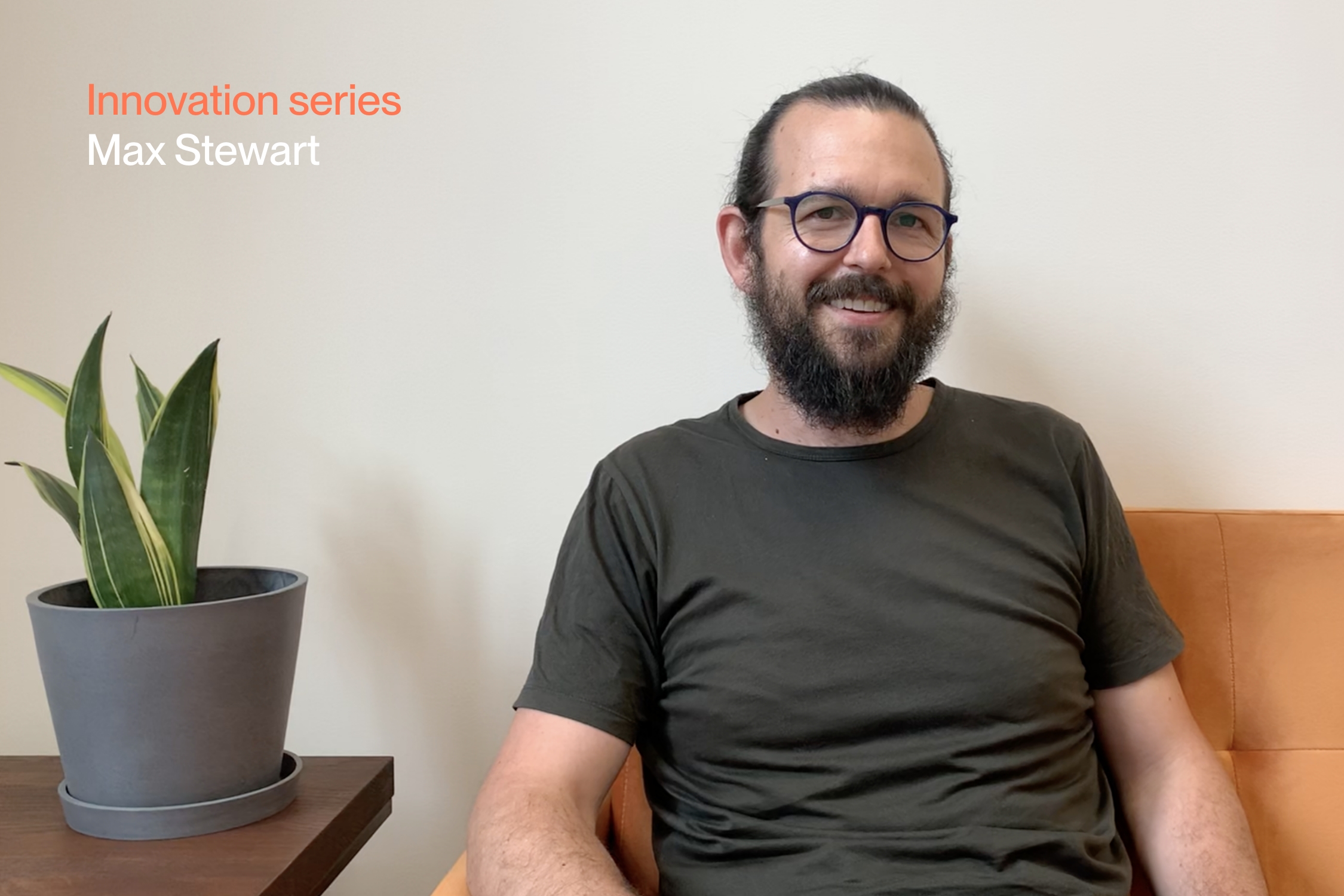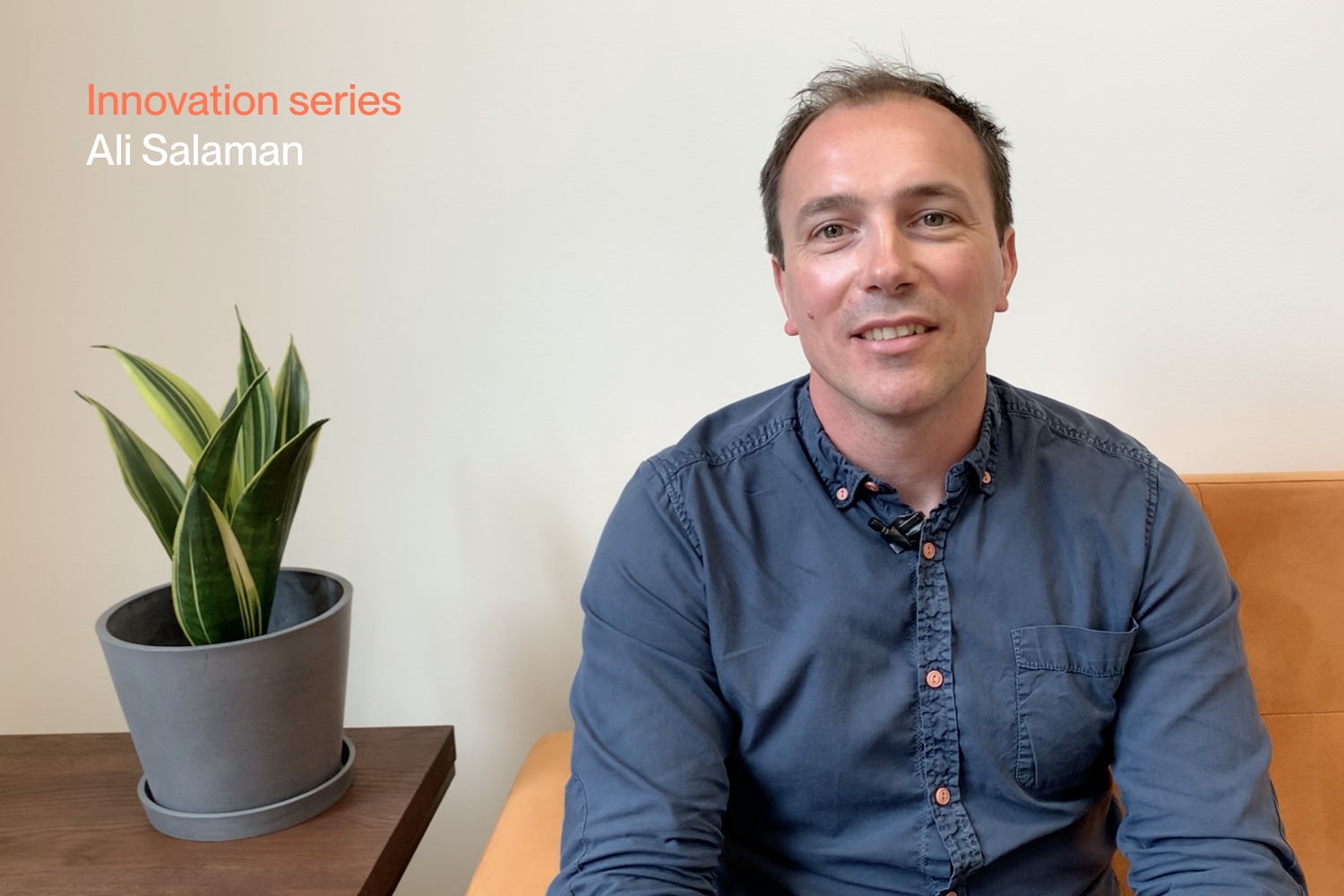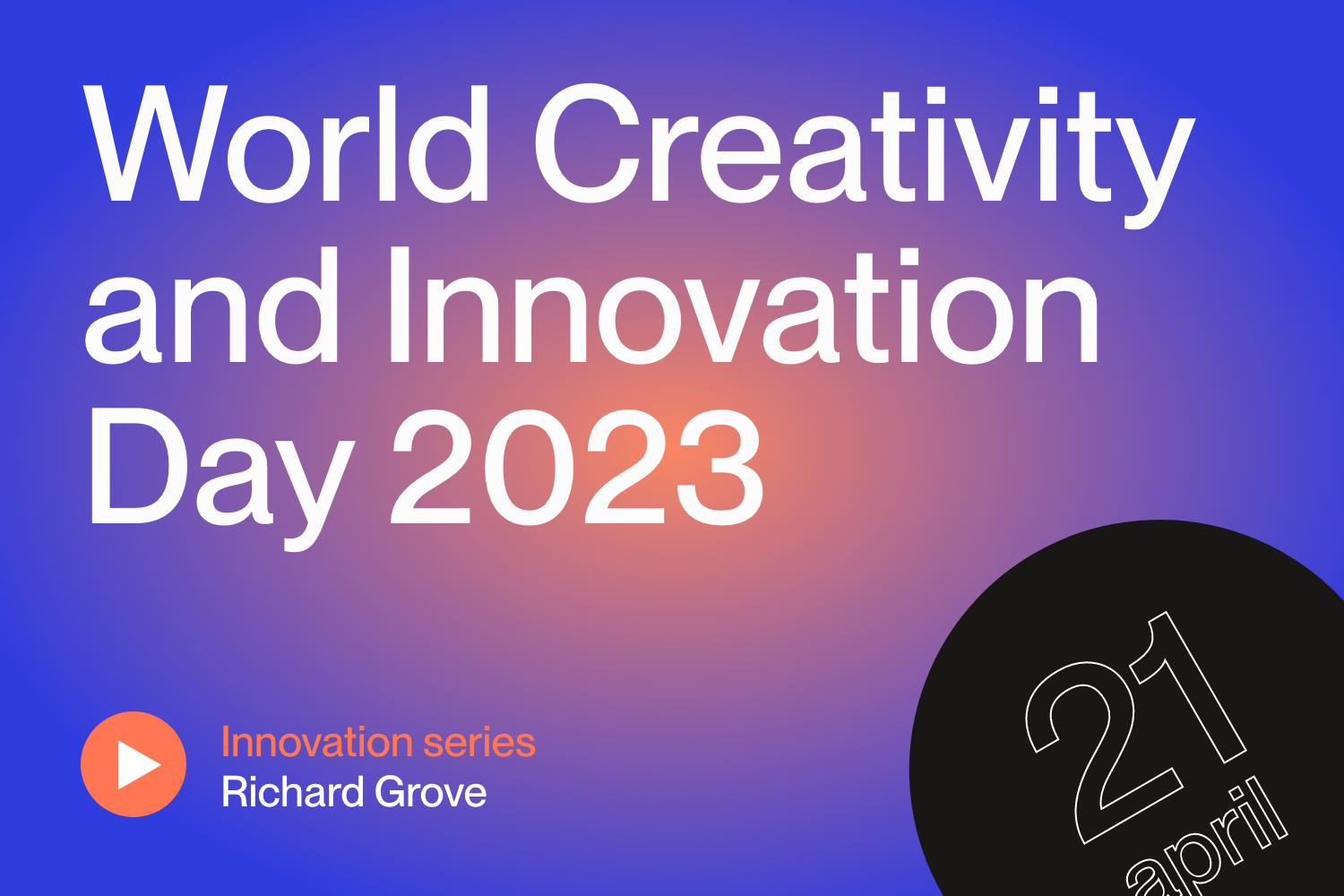
Innovation at CYB: what does it mean?
The word innovation has been in constant use for thousands of years but it wasn't until the mid 20th century that it began to connote something genuinely beneficial to society. It quickly became associated with an improvement in quality of life due to new products, better communication and breakthroughs in health care and the sciences.
However now, because the rate of change across all sciences and sectors of society has become relentless, the word innovation is losing its efficacy. Increasingly it makes us pause to consider whether what we are experiencing is indeed always a 'good' in society.
In more recent years the astounding human achievement of artificial intelligence (AI), is one such innovation. Only a few years old, it has supercharged the modelling of our physical world beyond any possible human capability, driving increasingly rapid discoveries across the sciences, effectively introducing an innovation acceleration platform. Unsurprisingly as a result it remains unclear how it and its resulting child innovations can ever be limited to only 'good' uses. Instead we must recognise that the threat of misappropriation will inevitably bring significant challenges for human society.
But such challenges have always been prevalent with human innovation - we only need to remember how the onset of the nuclear age changed global society forever with not just the promise of cheaper, cleaner, power but with the threat of a military miscalculation that could lead to entire nations being wiped out. An outcome we still have not escaped - and likely never will. This is to say nothing of climate change - the result of using fossil fuels for energy that is now an existential threat.
So should we innovate?
But for us at Caution Your Blast Ltd (CYB) the scope of our capability to innovate is constrained to digital technologies hence ways of interacting and communicating. That said, of course we do not have the $1B it would take to invest in training a large language model for AI, let alone the ability to attract and hire busloads of highly trained software engineers. Driving any form of technology revolution (the smartphone revolution; banking revolution; cryptocurrency revolution), any form of paradigm shift - is far from our world of everyday work.
When we here at CYB reflect on what we would like to achieve it is very clear - we seek to leverage new technologies to deliver outcomes that benefit both people and the planet. We think less of innovation and more about unique ideas, renewal, doing things differently, disrupting the norm, all with a relentless focus on the design question - why do it? And what are the subsequent risks and impacts of achieving it?
So as part of our mission to help people and the planet we realise we have to also touch innovation. And we try to embrace this ethically with the desire to lead by example on how it can be different.
An example of this is that we embrace collaboration over competition. Competition regardless of whether your country is democratic or authoritarian, left or right, is where governments, investors, personal rewards (bonuses and the like), press coverage, etc are all driven almost entirely by the Boolean outcome of winner or loser, where the innovation winner takes all financially and in social status. We believe that this behaviour directly undermines our mission to improve quality of life for the majority of people and the planet.
Another is where intellectual property is a means by which larger aggressive companies and entrepreneurs can dominate whole areas of technology. Effectively applying a global tax on many societies undermines fairness and equitable opportunities for all. We believe that to deny improvements in quality of life, or increased planetary protection, due to commercial drivers is unacceptable. Nations, universities, businesses, individuals, all need to have a social conscience larger than their self interests if the future is to be bright.
We seek simple and clear rights to our ideas and where they help others we seek to rapidly share them to maximise dissemination and equality of access.
So what do we look for?
Some of the key things we look for in an idea and a proposition can be distilled down to:
is there going to be enough beneficial impact?
is there enough of a challenge for us across technology, people, business model, policies?
have we got a talent edge and are we the right people to do this?
is the timing right in the marketplace considering trends, user readiness, commodities, and governance required?
does this leverage any other investment we've previously made such that there are compound benefits to be had?
What about the potential for a return on investment (ROI), shouldn't that be in the list above you say?
Of course ROI is relevant but it is not the mission. The above list represents building a mission that fits us around an idea. ROI is just one of many things that indicate that an idea or breakthrough has become successful. But typically an ROI will be and should be obscure at the beginning of dealing with new ideas. If it is not then we'd be suspicious that it is simply scaling up the already known - where there is no risk being taken.
Innovation as an activity
We’ve found that our best innovation comes from continuously performing generational research, ideation, experimentation, and testing - all of which can be happening at the same time feeding into each other. This includes the ethics of exploring new ideas. On this we seek to enfranchise the initial exploration process to be unconstrained as much as possible. It is the facets of the activity, its rules, tools and intellectual capital, that must be free to be explored.
Regulation and governance
We seek to discover and highlight where regulation and governance will be necessary as part of a go-to-market business model, but not to implement these in the earlier process of discovery where real innovation happens. Scaling something up is not innovation and scaling is where the need for regulation is paramount - and I note where we have witnessed massive failures to date and still are witnessing such failures that impact people and the planet daily.
Track record
Some of the many examples of new and unique ways of doing things we've introduced since CYB was formed in 2010 (delivered either independently by CYB or by taking a significant role in the delivery) are:
robotic process automation software as a service, including developing a new user process modelling notation allowing organisations to streamline complex back office processes across both web (thin) and thick client applications [2010]
inaugural capability for interactive news media stories utilising visualisation on large datasets providing entirely new ways to tell stories with a reader element of self-examination of facts [2011]
online large flexible datasets for sharing artwork records of provenance, allowing artists to easily record and share details of works with varying taxonomies [2012]
serving of dynamically resized images to optimise responsive viewing, supporting a high quality viewing experience on all screen resolutions [2012]
common central government payments as a service, which proposed and paved the way for the provision of GOV.UK PAY now underpinning hundreds of government services [2013]
UK Visa self-service technology scalable across multiple visa types and languages, implemented for <1% of the build and running costs of a failed IBM solution (decommissioned with the loss of £347M of taxpayers money) [2014]
client-side transport route planning execution providing full data privacy for users, with new capabilities including real-time multi-modal end to end journey times, replanning options while walking, being alerted that a bus is coming as you walk, and offline planning with no data connectivity [2015]
point-of-donation technology platform establishing a global marketplace ecosystem of providers for the charity sector, reducing the cost of cashless giving and eases the burden on charities to keep up with rapidly changing digital payment options, now available as Give A Little® [2019]
analysis, design and implementation for a uniquely flexible visual design environment for designing low code front end user journeys, meeting very high quality standards for GOV.UK services along with runtime service components for operating the end solution. Now available as an open source managed project (itself a first in the UK government) XGovFormBuilder [2020]
eApostille digital service - legalisation of UK documents for foreign governments enabling a quicker, cheaper and more efficient service for thousands of people around the globe (Press release) [2022]
Looking forward
Going forward, our response to challenges will be to bring our creativity and enthusiasm into designing a better future. We’ll be listening to people and acting on what we hear to delve into the complex and messy business of providing good solutions.
When an idea or breakthrough comes to the surface we don’t naturally jump to the clarion call of innovation but more simply to ask ‘might this be a good solution’?
For us, innovation is a humble and intrinsic part of who we are, and what we do. Simply, if it helps then we’ll do it.



